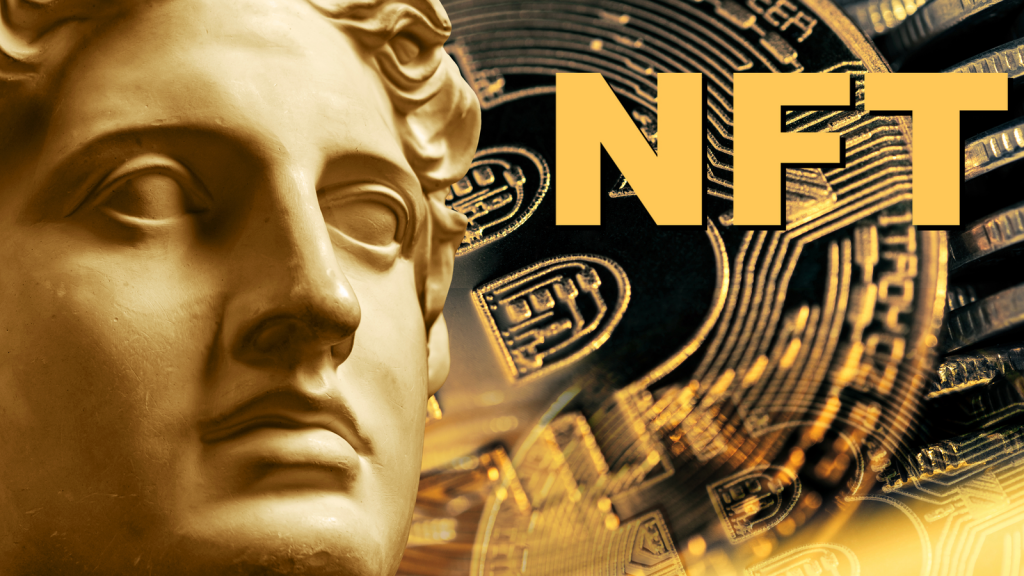- Interested in NFTs, but don’t want to buy them directly? These three NFT stocks offer exposure to the market.
- Coinbase (COIN): Being one of the most popular cryptocurrency exchanges, Coinbase is sure to capitalize on the NFT market.
- eBay (EBAY): Its popularity can make the stock profitable in the long-term.
- Funko (FNKO): An undervalued sleeper stock that is very likely to profit from the NFT market.
The non-fungible token (NFT) market is estimated to be more than $82 billion by 2026, with a compound annual growth rate (CAGR) of more than 40%.
However, investing in NFTs can be pretty risky if you buy them individually. There is no guarantee of their value, and reselling them for a profit can be troublesome if other investors deem these assets of less value.
Thus, it is better to invest in public stocks that will indirectly profit from the NFT market. Publicly traded stocks are strictly regulated and are easier to buy and sell for beginners. Here are three stocks that will profit from the growth of the NFT market.
Coinbase (COIN)

Coinbase (NASDAQ:COIN) is one of the largest cryptocurrency exchanges, and it allows users to buy NFTs on its platform. Moreover, Coinbase is set to keep dominating the U.S. crypto market, considering its largest competitor Binance is banned in the U.S. Binance did release a U.S. version; however, that version has fewer features, and it is also banned in seven U.S. states.
I believe that Coinbase’s stronghold on the world’s largest economy makes it a good long-term investment. In addition, Coinbase seems to be bottoming out after a 64% decline since November.
The market capitalization of Coinbase stands at $32 billion with an annual revenue of $7.84 billion. However, considering the growth prospects of Coinbase, it is likely undervalued.
Nonetheless, I advise putting a small amount of capital for now. If you wish to buy a significant amount of COIN, I recommend doing so after May 10. The company will be disclosing its first-quarter results on that day, and any disappointing figures can make the stock decline.
eBay (EBAY)

eBay (NASDAQ:EBAY) opened its platform for NFT investors last year. The platform currently has 147 million global buyers, which gives eBay a large customer base. Thus, when NFTs start gaining popularity, eBay will indirectly profit from all the sales due to its flat 5% fee.
The stock is down 30% from its all-time high in October last year. However, eBay has been relatively stable since February. eBay’s $31 billion market cap also seems fairly valued considering its quarterly revenue growth slowed to just 2.67% last year.
eBay’s annual revenue stood at $10.4 billion last year, and investors have low expectations for eBay this quarter. The earnings call on May 4 is likely to break the current steady trajectory.
It is difficult to predict how eBay will be performing until it publishes the first-quarter results. If eBay performs better than expected as it did in the last quarter, it is still unlikely to give it a significant spike.
Thus, I suggest prioritizing COIN and FNKO before buying eBay, as it will likely take quite some time before eBay can start performing better.
Funko (FNKO)

Funko (NASDAQ:FNKO) is a company known for its physical and digital collectibles. It got into the NFT market last year when it launched the Digital Pop. Funko’s collectibles are a $1 billion business, and the company is highly undervalued.
Funko’s $679 million market cap on the stock market is 34% less than its revenue. In addition, Funko’s revenue grew by 48% in the fourth quarter of 2021, compared to 40% revenue growth in the third quarter. The revenue is likely even higher this quarter.
Moreover, the stock has been holding stable for nearly a year despite the high revenue growth. If NFTs and collectibles become even more popular, FNKO will be uniquely positioned to capitalize the most from it.
Therefore, FNKO is undoubtedly undervalued in its current state and is a buy.
On the date of publication, Omor Ibne Ehsan did not have (either directly or indirectly) any positions in the securities mentioned in this article. The opinions expressed in this article are those of the writer, subject to the InvestorPlace.com Publishing Guidelines.
